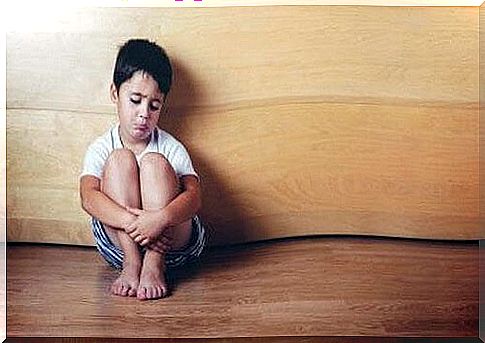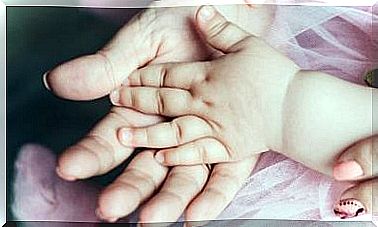Signs Of Emotional Deficiency In Children

Kisses, hugs, caresses and advice are signs of affection that parents must show their children. It is not whim or addiction, showing affection to children contributes to their proper psychosocial development. Let’s see in this article what are the signs of affective deficiency in children.
During childhood, people are almost entirely dependent on parents or responsible adults. Not only from an economic or educational point of view, but also in the emotional and psychological aspects. There is nothing more rewarding than a parent who shows affection, love and understanding towards his or her children. This will allow them to grow in a healthy environment and develop the habits they have learned at home.
However, many children do not receive enough affection from their family or those closest to them. When this happens, the signs of affective deficiency appear and influence the behavior of the little ones.
What are the signs of affective deficiency in children?
Children require displays of affection from closest people to feel loved and protected. As the child grows, parents tend to show less affection.

Sometimes the long hours of work and the busy modern lifestyle cause adults to forget some of their family duties, including offering their children gestures of love that remind them how important they are.
Affective deficiency in children always makes them feel alone or abandoned, weakens communication between parents and children and can undermine self-esteem.
To know if your children need you to show them more affection, you need to be aware of the following issues:
- They are problematic children who hardly interact with others.
- They are always on the defensive and alert to what is happening around them.
- They suffer from childhood stress.
- His immune system is weak due to his high level of depression.
1. Disobedience
One of the signs of emotional deficiency in children is the need for attention. To be the center of attention, children tend to disobey their parents’ orders and engage in inappropriate behaviors, such as tantrums and crying in public places.
Children who want the love and attention of their parents often make a scene and, if they do not reach their goal, increase the intensity and frequency of the same. Typical signs of disobedience in children are:
- Exaggerated plants.
- Aggression.
- Anger.
- Impulsiveness.
- Sudden mood swings.
2. Aggression
When children are aggressive, it is best to listen to them and give weight to what they say. This way they will feel considered and have the confidence to say what worries them.

3. Insecurity
Faced with emotional emptiness and affective deficiency, children feel unprotected, which causes them to fear when interacting with other people. This insecurity and constant fear of their physical integrity leads them to be always on the defensive and very attentive to what happens in their surrounding environment. Lack of security is a clear sign of a problem.
4. Fear
Affective deficiencies in children that are not treated by a specialist or those that the child cannot overcome can generate a sense of emptiness and distrust that will be present in his relationships as he grows up.
When children don’t get the affection they need from their parents and relatives, they grow up with fear of abandonment. This pattern is difficult to eliminate and it is usually necessary to take the child to a psychologist or therapist who can help him overcome fear and strengthen the relationship with his parents.
5. Low academic achievement
Lack of attention and affection in children can cause learning disabilities and lack of motivation when doing homework. According to many psychologists, language problems and poor school performance are among the signs of affective deficiency in children.
They usually need more time than their peers to develop language and have poor social skills. They censor their emotions and usually deny any kind of affection to those around them.
6. Attachment to electronic devices
Some parents choose to let the digital babysitter take care of their children. This tendency to let children be distracted by electronic devices or television creates an impersonal parenting method. This locks the little ones into a technological bubble in which human interaction is excluded.

Conclusion
Affective deficiency in children generates a great fear of losing loved ones. This causes them to always be on the alert.
Children who grow up in a home lacking affection assume a state of perennial anxiety. Always looking for emotional relationships that can satisfy their needs to feel loved and safe.
We must keep in mind that, in order to grow, the little ones of the house require constant manifestations of affection and love, such as caresses, kisses and hugs. Demonstrations of affection are decisive for forming their personality and promoting their cerebral maturation. Without these manifestations of affection, the child’s neuronal development is incomplete and weakens his cognitive abilities.
Affective lack can lead children to have an insecure personality characterized by emotional immaturity, selfishness and identity problems. When children grow up in a loveless environment, they are unlikely to have stable interpersonal relationships and often have great conflicts of values.









